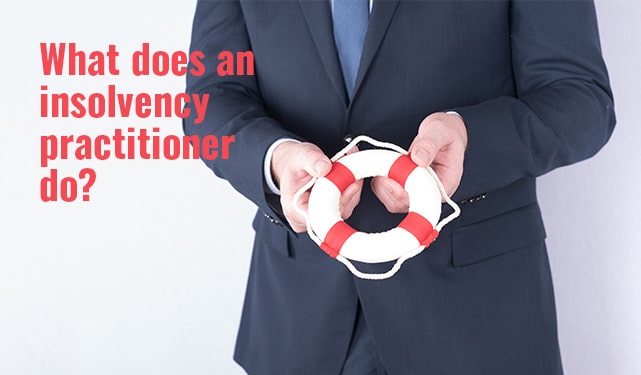Getting The Insolvency Practitioner To Work
Getting The Insolvency Practitioner To Work
Blog Article
Examine This Report on Insolvency Practitioner
Table of ContentsThe Facts About Insolvency Practitioner RevealedA Biased View of Insolvency PractitionerEverything about Insolvency PractitionerExamine This Report on Insolvency PractitionerInsolvency Practitioner Things To Know Before You Buy
Whether or not you need to make use of a bankruptcy practitioner (IP) to liquidate your firm relies on numerous elements. While involving an insolvency practitioner for all kinds of liquidation is not a lawful requirement, doing so can often improve the process and make certain compliance with legal requirements. Liquidating a business is a crucial choice that includes significant consequences.
It is a treatment utilized when a company does not have any financial institutions, or all of their financial institutions can be repaid completely with legal rate of interest. Understanding the different types of insolvency procedures can help you determine the most effective strategy for your company's liquidation or other official insolvency procedures itself.
This is compulsory in order to comply with legal needs - Insolvency Practitioner. This is due to the fact that IPs have the needed qualifications and experience to ensure that the liquidation procedure is performed based on all suitable laws and policies. By involving a licensed bankruptcy professional, you can have assurance recognizing that your business's liquidation process will be taken care of professionally and in conformity with the appropriate lawful requirements
The 5-Minute Rule for Insolvency Practitioner
The bankruptcy practitioner is selected as a liquidator and is in charge of handling the firm and liquidator's financial obligations outstanding liabilities and possessions. This procedure entails selling the business's assets and dispersing the profits to financial institutions. Upon conclusion of the procedure, the company is removed from the register at Firms Home.
Falling short to do so can lead to personal responsibility for the firm or supervisor for the creditor's debts. Voluntary liquidation, which consists of Financial institutions' Volunteer Liquidation (CVL) and Participants' Volunteer Liquidation (MVL), is started by the firm's directors and investors when they can no much longer pay their debts. In a CVL, the bankruptcy practitioner is assigned as the liquidator, in charge of taking care of firm financial debts and all firm possessions.

7 Easy Facts About Insolvency Practitioner Described
By evaluating the expertise and experience of potential bankruptcy specialists, you can ensure that you select an expert who has the essential qualifications to manage your firm's liquidation process properly. While insolvency practitioner-led liquidation is often one of the most appropriate strategy for companies facing bankruptcy, there are alternate strategies to consider, such as striking off and partial liquidation.
It's important to evaluate all available choices before choosing the following ideal solution or strategy for your company. Striking off companies' registers is an extra uncomplicated and cost-efficient means to close inactive or small companies without any financial obligations or properties. To strike off a company, its name is removed from the Business Residence register by sending form DS01.
Prior to choosing striking off, it's crucial to evaluate the benefits and disadvantages of this technique and consider whether it's the ideal choice for your service. Partial liquidation original site is one more alternative to insolvency practitioner-led liquidation, where a company sells off specific possessions and responsibilities while continuing to run with the staying properties and responsibilities.
A Bankruptcy Expert will certainly have the ability to suggest you of the best strategy to take pop over here and guarantee that whatever runs smoothly. It is not feasible to sell off a business without a liquidator. Designating an authorized bankruptcy practitioner is essential for the process of volunteer liquidation to start.
The Buzz on Insolvency Practitioner
It is feasible to close and liquidate your business without using a liquidator, supplied your firm is solvent and you satisfy the qualification requirements to liquify or liquidate it. However, if your company is bankrupt, you might be needed to use a liquidator and start formal bankruptcy treatments. Right here are a few other helpful posts regarding business liquidation in the UK:.
Remaining in a position where you're incapable to pay your company's creditors is exceptionally difficult. In an attempt to stay clear of increasing the level of financial obligation, several companies try to negotiate directly with their creditors and consent to an informal setup. If the financial debt is fairly tiny and owed to one financial institution, and the lender is being participating, participating in an casual debt plan is most likely the ideal option, rather than searching the web for pop over to this site 'an insolvency specialist near me'.
On the various other hand, if there are several creditors and the degree of financial obligation is large, lenders may not be so willing or participating. In order to avoid liquidation or personal bankruptcy, it is better to employ an insolvency professional to create formal propositions and bargain with financial institutions on your part.
The Single Strategy To Use For Insolvency Practitioner
Whilst it is a method to handle financial debt, there are substantial risks included with this sort of financial debt setup - Insolvency Practitioner. If a creditor wants to participate in a casual setup (IA) whereby the debtor has actually consented to make regular, if reduced, settlements to pay off the debt, it's vital to stay with the agreement

The lender is within their civil liberties to back out of the agreement and request the courts for your business to be sold off at any type of time. An official setup that has actually been suggested by an insolvency expert on your part, and concurred by a lender, supplies a much more secure alternative.
Report this page